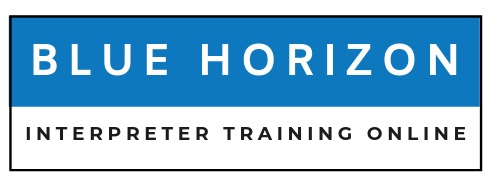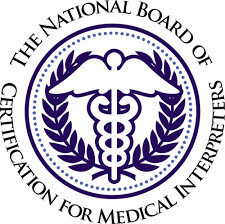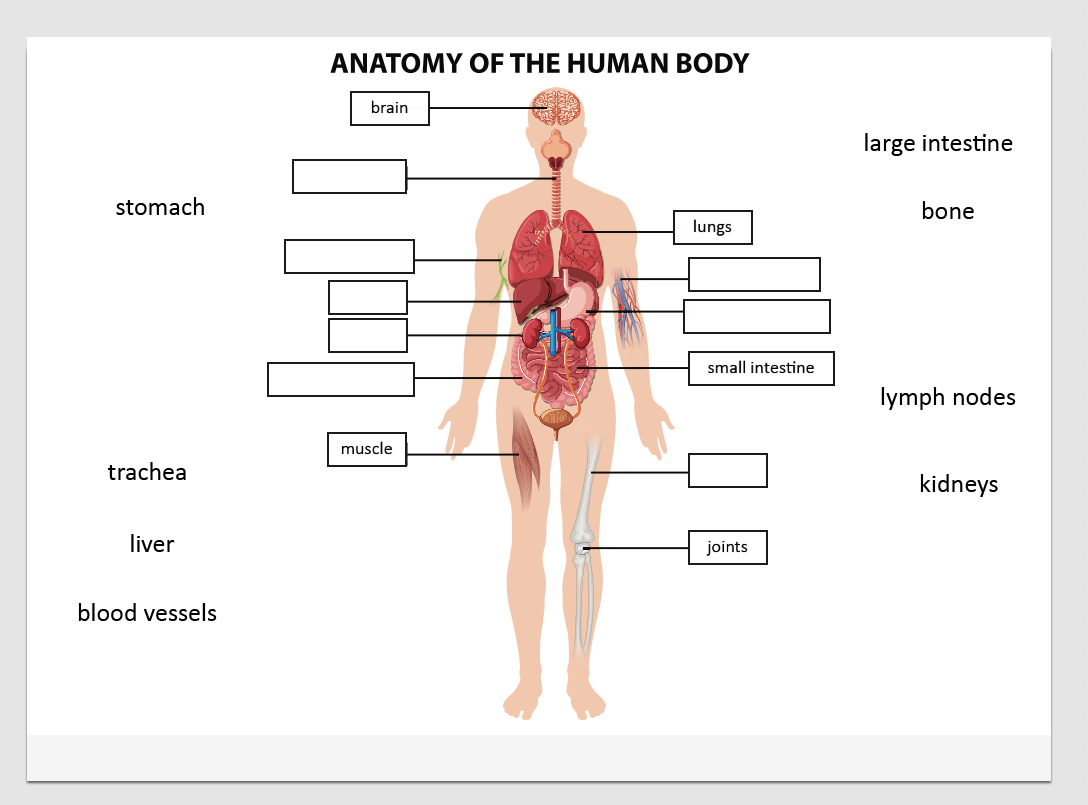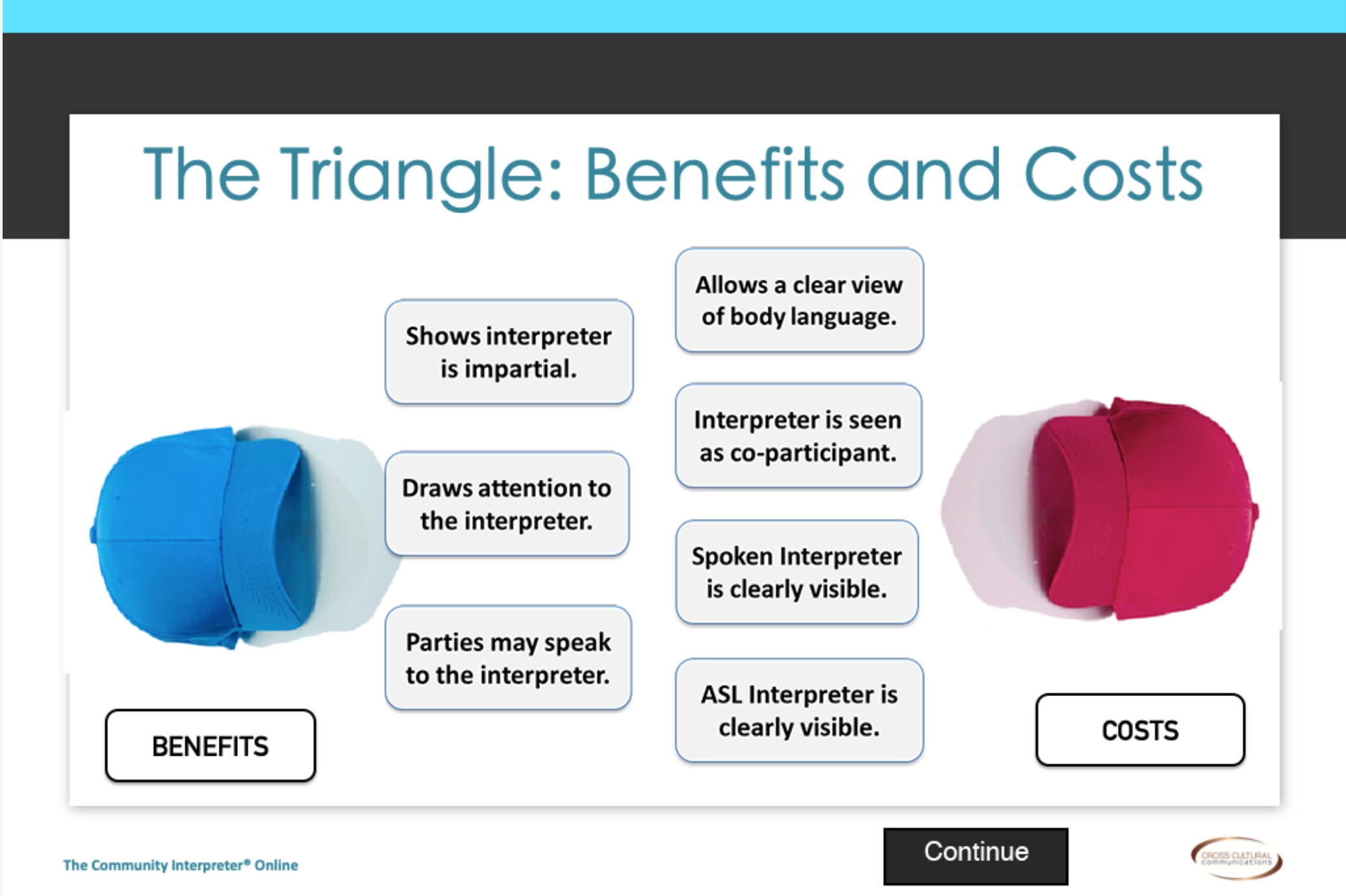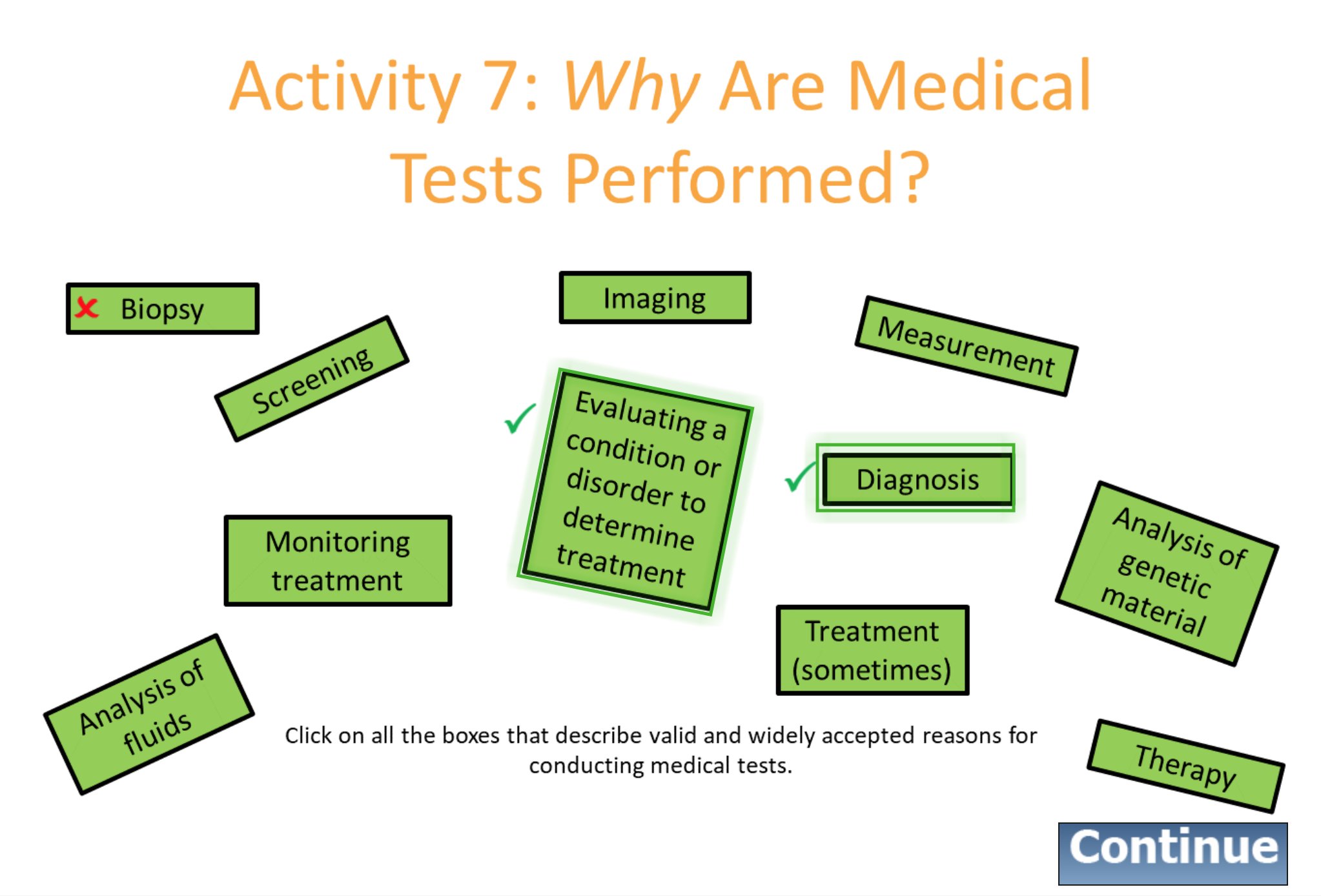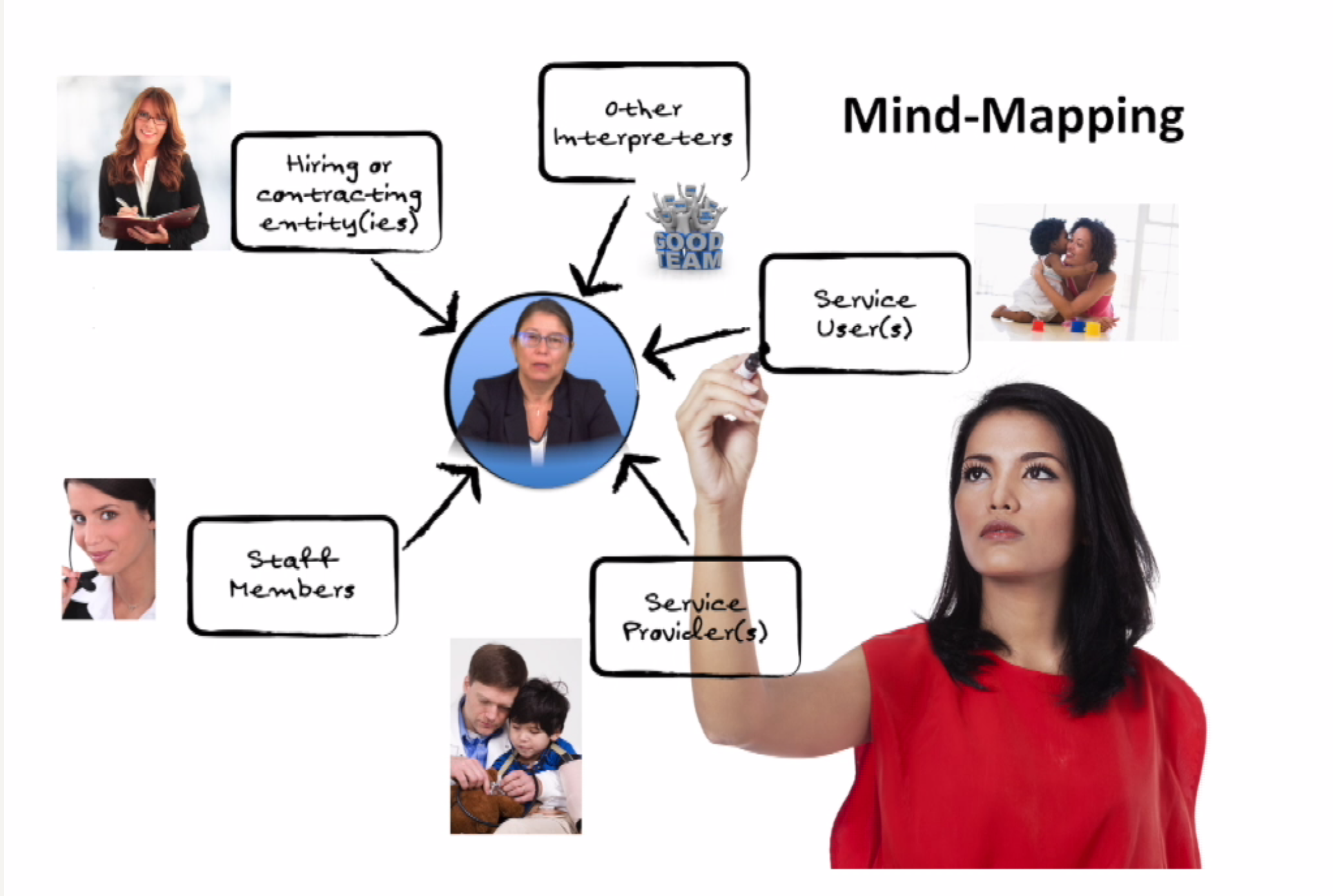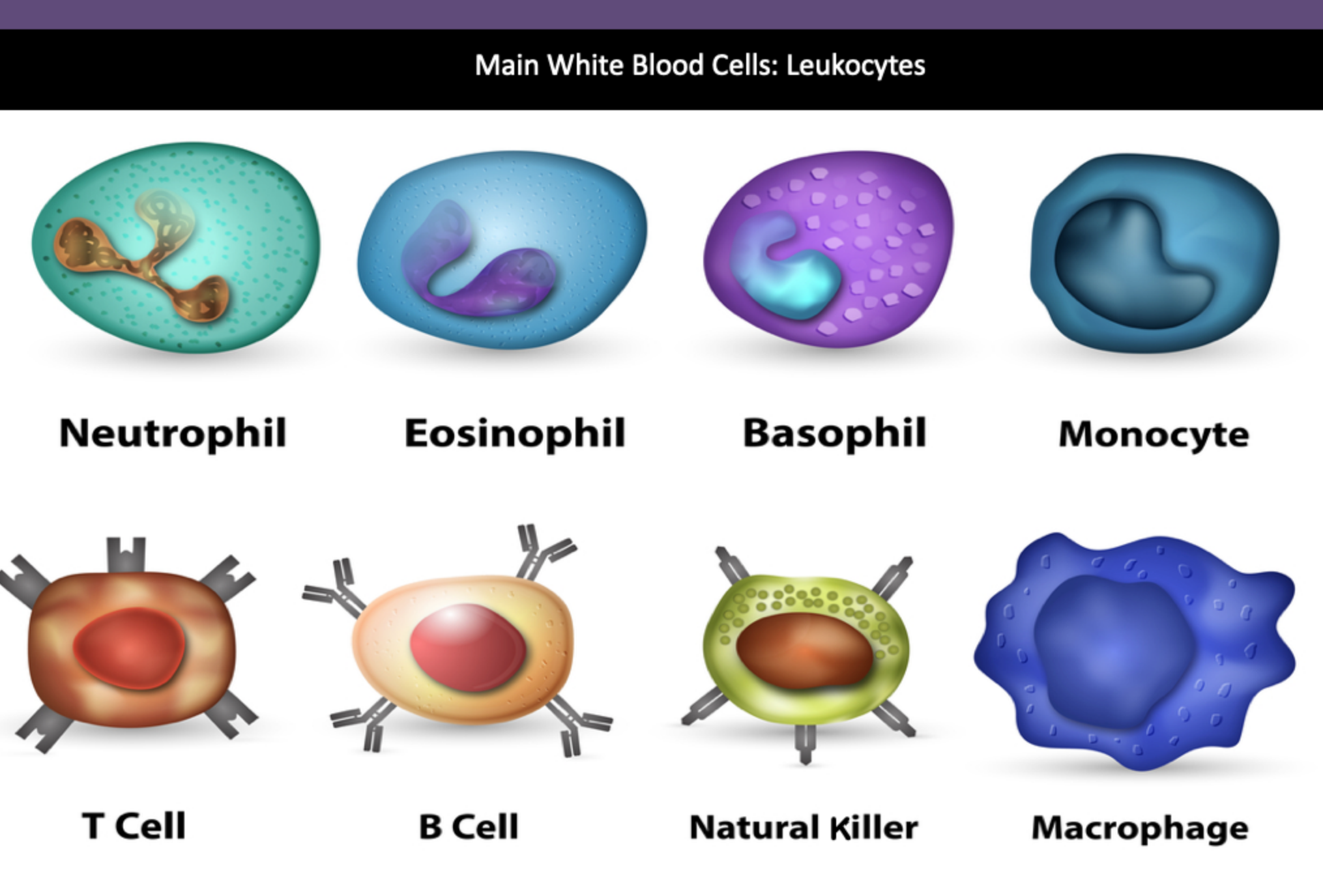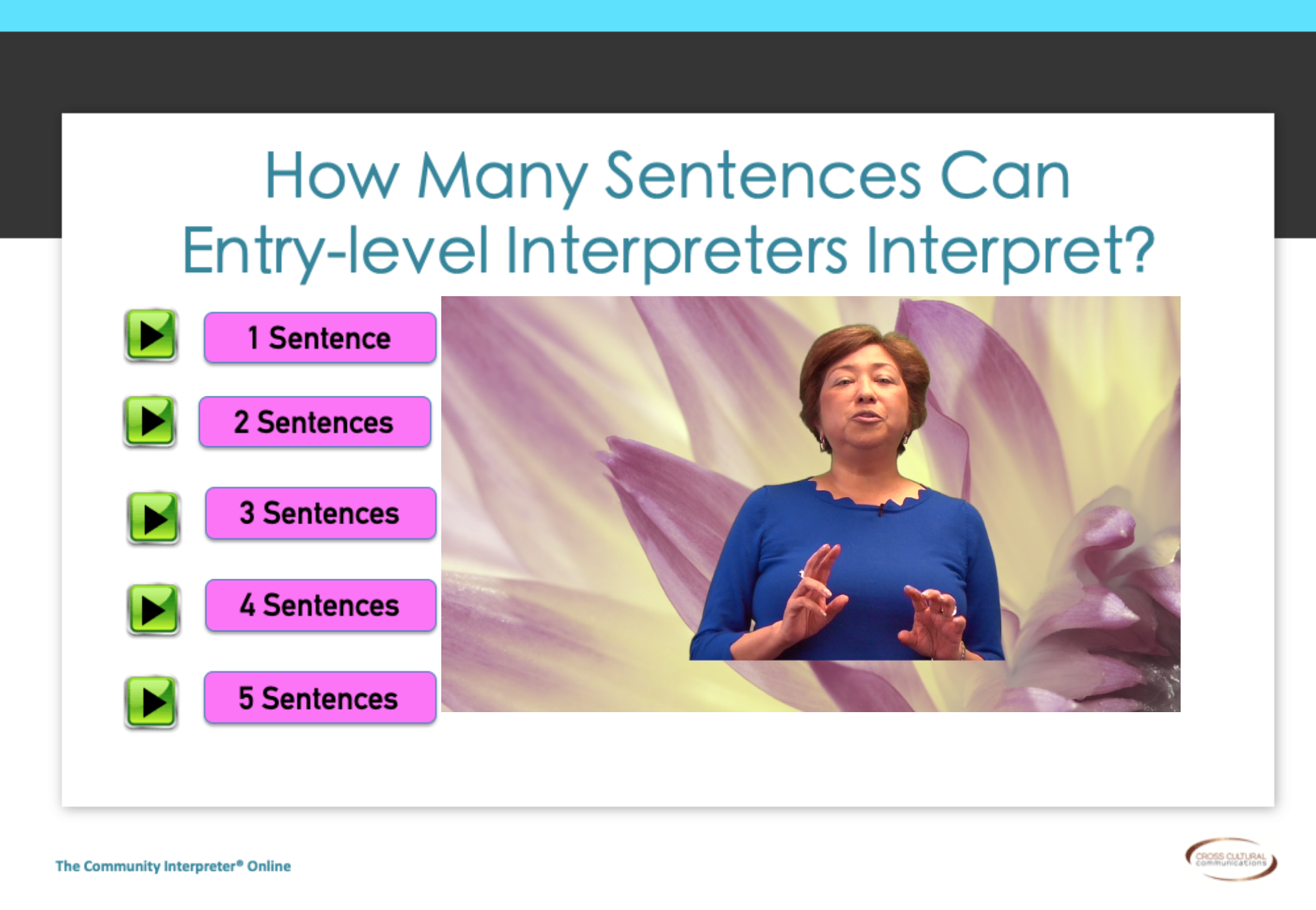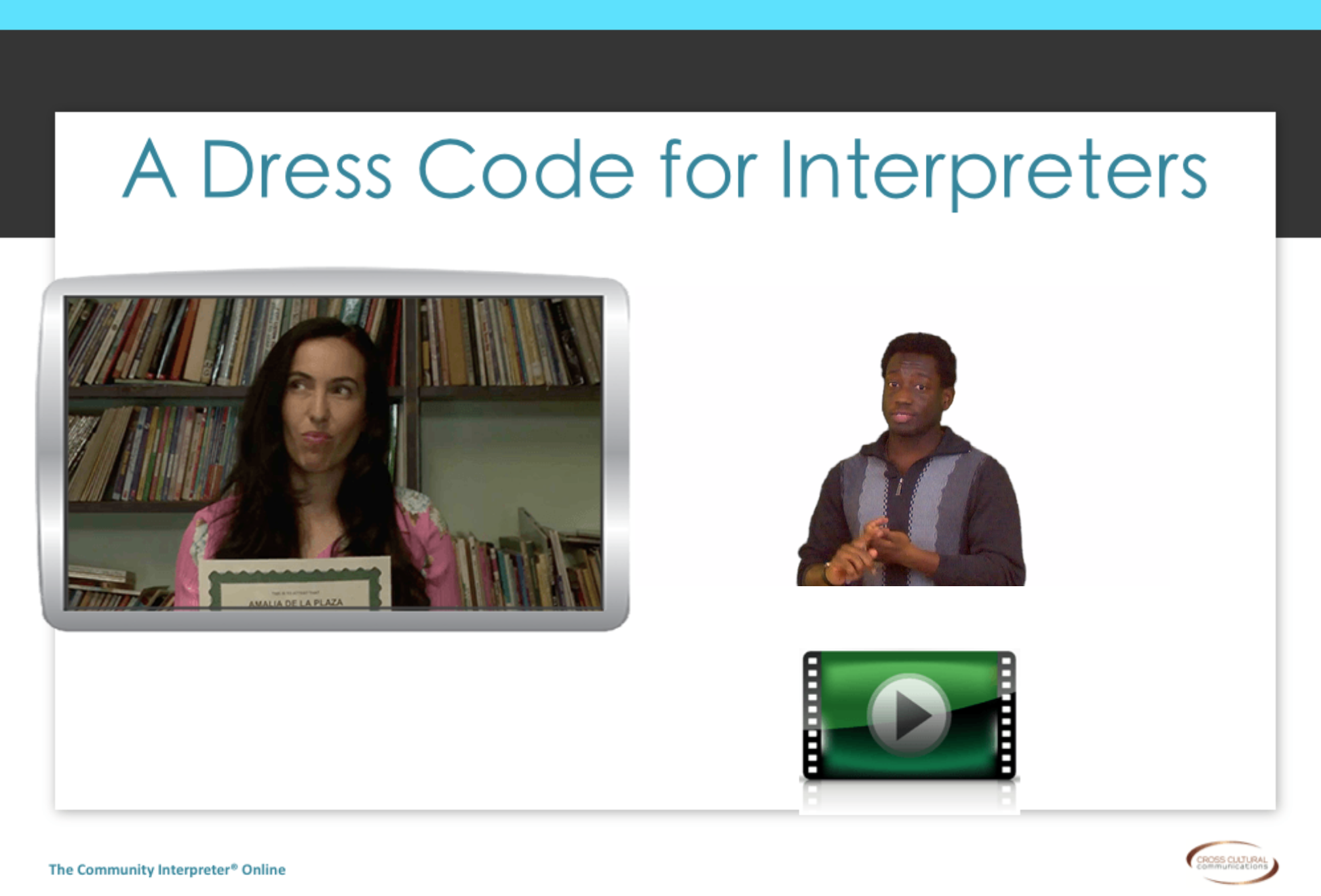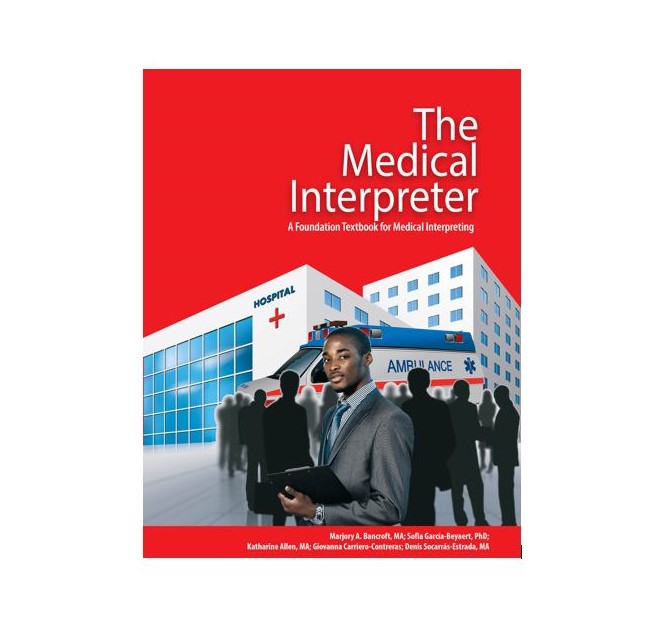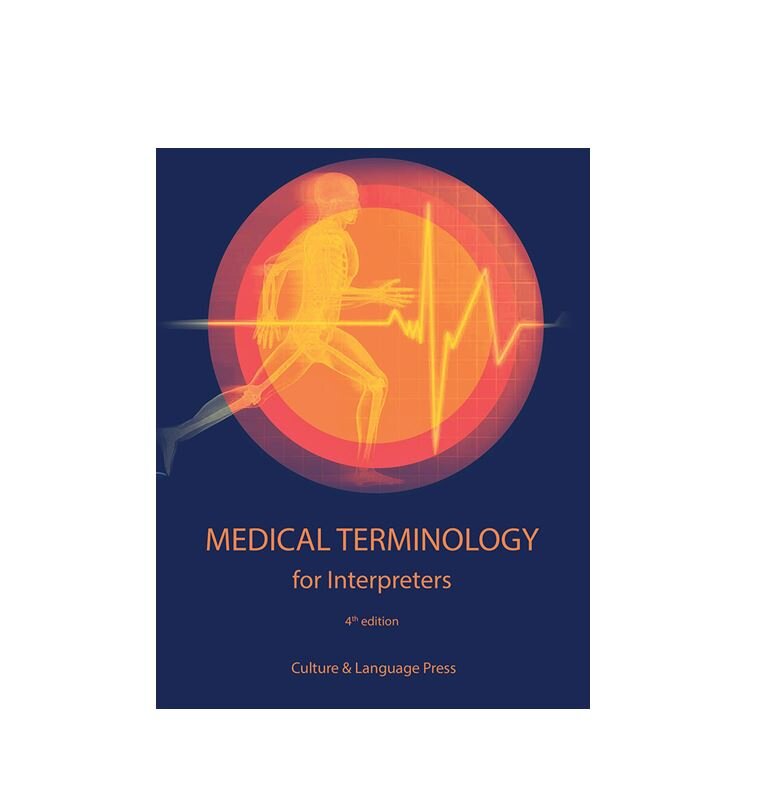The Medical Interpreter Online
TMIO, in tandem with our online courses on medical terminology, prepares you for U.S. national medical certification and other accreditations.
FAQ
Should I take The Medical Interpreter Online (TMIO) or The Community Interpreter® Online (TCIO)?
Interpreters planning on working in just healthcare settings should take TMIO. Interpreters planning on working in a variety of community settings should take TCIO. That said, both programs satisfy the 40-hour prerequisite training needed before applying for medical interpreter certification with CCHI or NBCMI.
“I learned quite a few things that I had not yet learned in my graduate program for interpreting. I am glad that I chose this course to help me!”
“Great job on this. I am a certified ASL interpreter with many years of training and experience. There was some great new info in this for me. THANKS!!!”
“I really enjoyed this online training and would recommend to others.”
“This course has been my only interpreter course taken. It gave me a panoramic view of everything that can be done and accomplished through interpreting. I understand that I will need to keep studying, practicing and continue my education to become a competent professional interpreter. This course gave the tools and the knowledge on how to get there.”
The Medical Interpreter Online (TMIO) is a robust introduction to medical interpreting. It prepares you to enter the field as a professional interpreter in healthcare.
TMIO is the authorized medical-only online version of The Community Interpreter® International, the world’s leading entry-level program for medical and community interpreting.
TMIO meets the training requirement to apply for medical interpreter certification with the Certification Commission for Healthcare Interpreters (CCHI) and the National Board of Certification for Medical Interpreters (NBCMI).
TMIO covers medical interpreting ethics, standards, protocols, skills and modes. It tackles medical terminology, the healthcare system, medical protocols—including HIPAA and infection control—and language access laws. It shows interpreters how to manage challenging situations and cultural barriers. TMIO guides you through challenging situations where you need quick decision-making skills.
The program offers 22 short courses and three video presentations. These courses and presentations feature 10 video instructors (including a pediatrician/interpreter and the founder of Cross-Cultural Communications). You will get 3 in-depth lessons on medical terminology, more than 240 interactive activities, 22 role plays (many in 9 language pairs) and skills-building activities, quizzes, videos of interpreters in action, and much more.
Meet the tMio video Instructors:
The program includes the ebook version of our best-selling textbook: The Medical Interpreter: A Foundation Textbook for Medical Interpreters and our best-selling handbook: Medical Terminology for Interpreters (4th ed).
TMIO is fun! Yet it gives you real job training. If you want to work as an interpreter in healthcare, this program will launch your career!
Created by spoken-language interpreters, this program warmly welcomes signed-language interpreters, who have benefited, and in many cases, become trainers for the face-to-face program.
TMIO Course Content (ESTIMATED TIME FOR COMPLETION: 40 HOURS)
TMIO Module 1 (Estimated time for completion: 6 hours, 50 minutes)
Module 1 of TMIO is your introduction to the profession of medical interpreting. This module of five lessons launches with Lesson 1.1, an overview and history of the profession, followed by Lesson 1.2, which explores the credentials, testing and type of certification you’ll need to establish yourself as a professional in the field. Lesson 1.3 provides an introduction to a U.S. national code of ethics; 1.4 shows you how to apply those ethical principles to real-life situations. Finally, Lesson 1.5 guides you in reflective practice and self-assessment, critical areas for all practicing interpreters.
Lesson 1.1: An Overview of Healthcare Interpreting (50 minutes)
Lesson 1.2: Interpreter Credentials and Certification Take this lesson for free! (1.5 hours)
Lesson 1.3: Ethics in Action 1 – Codes of Ethics for Community and Medical Interpreters (1.5 hours)
Lesson 1.4: Ethics in Action 2 – How to Apply Interpreter Ethics (1.5 hours)
Lesson 1.5: Interpreter Self-Assessment (1.5 hours)
TMIO Module 2 (Estimated time for completion: 10.5 hours)
This module dives into the skills and protocols necessary to conduct yourself as a professional medical interpreter. Lesson, 2.1, guides you in how to conduct yourself during the three stages and seven steps of the interpreted encounter. Then Lesson 2.2 guides you on basic protocols such as assignment, preparation, introductions, positioning, eye contact and use of first person. The remaining four lessons focus on skills. Lesson 2.3 explores how to improve your memory skills in order to interpret longer segments without interrupting, while 2.4 teaches message transfer skills that enhance accuracy such as chunking, parroting and paraphrasing. Lesson 2.5 walks you through the modes of interpreting (consecutive, simultaneous and sight translation) while 2.6 introduces you to the fundamentals of the Rozan method for note-taking in consecutive interpreting.
Lesson 2.1: How to Conduct an Interpreted Encounter (1.5 hours)
Lesson 2.2: How to Perform Standard Interpreting Protocols (1.5 hours)
Lesson 2.3: Three Techniques to Improve Memory Skills (1.5 hours)
Lesson 2.4: Sharpen Your Accuracy! Message Transfer Skills for Interpreters (2 hours)
Lesson 2.6: Advance Your Skills In Note-taking for Interpreters (2 hours)
TMIO Module 3 (Estimated time for completion: 7.5 hours)
Module 3 is your roadmap on what to do when interpreting breaks down. But first, Lesson 3.1 walks you through how to help make sure your own unconscious biases do not lead you to interrupt a session when you shouldn’t. Then Lesson 3.2 helps you decide if and when you should intervene (though remember: “When in doubt, stay out!”). Lesson 3.3 guides you in how to interrupt a session and helps you prepare mental scripts for what to say when you do. Lesson 3.4 provides a simple, five-step Strategic Mediation Model to help you address communication problems quickly and effectively. Lesson 3.5 introduces you to how to perform cultural mediation without being intrusive or inaccurate.
Lesson 3.1: Cultural Competence 1 – Assess Your Unconscious Bias as an Interpreter (1.5 hours)
Lesson 3.2: Cultural Competence 2 – When Should Interpreters Intervene? (1.5 hours)
Lesson 3.3: Cultural Competence 3 – How to Intervene as an Interpreter (1.5 hours)
Lesson 3.4: Cultural Competence 4 – How to Perform Strategic Mediation (1.5 hours)
Lesson 3.5: Cultural Competence 5 – Cultural Mediation for Interpreters (1.5 hours)
TMIO Module 4 (Estimated time for completion: 8 hours, 40 minutes)
In this module, you will learn who you are as an interpreter and how you fit into the profession. This module begins with a video introduction to the U.S. healthcare system which provides critical information that a medical interpreter needs to know to work professionally and effectively in the U.S. Then it is on to the four lessons in this module. Lesson 4.1 tackles the most controversial question in the field: what is your role? Lesson 4.2 addresses another huge controversy: advocacy. What is advocacy for interpreters? Should you engage in it? If so, how? Lesson 4.3 walks you through national standards of practice, not only to help support your code of ethics but to standardize practices in the field. Lesson 4.4 guides you in how to keep yourself safe and well in your professional practice. This module closes with a two-part video entitled “Special Topics In Medical Interpreting” which identifies important protocols for medical interpreters, addresses legal issues in medical interpreting and discusses important practices for infection control.
Introduction to the U.S. Healthcare System (50 minutes)
Lesson 4.1: Understand Your Role – How Interpreters Make Decisions About Role Boundaries (1.5 hours)
Lesson 4.2: Wait. They’re Going to Operate on the Wrong Leg! Advocacy for Community and Medical Interpreters (1.5 hours)
Lesson 4.3: How to Follow Interpreting Standards of Practice (2 hours)
Special Topics in Medical Interpreting (50 minutes)
TMIO Module 5 Medical Terminology for Interpreters (Estimated time for completion: 6.5 hours)
These three, self-contained lessons present an overview of medical terminology for interpreters, how these terms relate to the human body and language registers used in healthcare.
